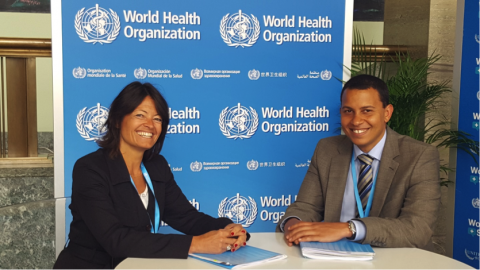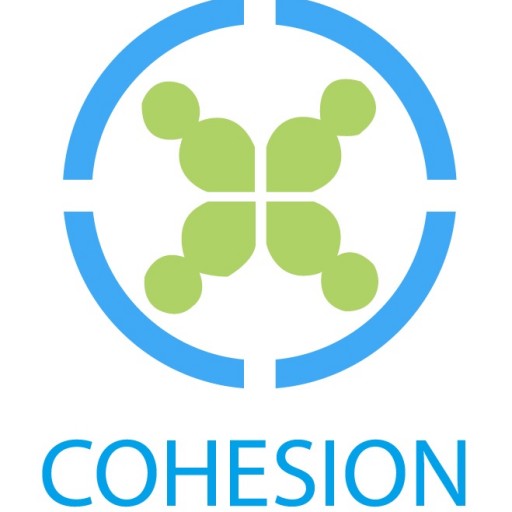The COHESION project was at the World Health Assembly,
“the decision-making body of WHO. It is attended by delegations from all WHO Member States and focuses on a specific health agenda prepared by the Executive Board. The main functions of the World Health Assembly are to determine the policies of the Organization, appoint the Director-General, supervise financial policies, and review and approve the proposed programme budget. The Health Assembly is held annually in Geneva“ (http://www.who.int/mediacentre/events/governance/wha/en/).
Six members of the COHESION team (David Beran, Claire Somerville, L. Suzanne Suggs, François Chappuis, Jorge Correia, and Sarah Lachat) attended various sessions on NCDs, NTDs, patient safety and more. In this blog post, Sarah and Jorge highlight some of their key take home messages relevant to COHESION.
- The opportunity to integrate NCDs and NTDs care into PHC as well as to address their risk factors is clear. The growing political engagement and promising initiatives at global and regional levels to ensure that «no one is left behind» (UHC approach) and to improve global health security after the Ebola crisis make addressing the double burden of NTDs and NCDs not only appropriate but also essential. For example:
- The International Health Partnership (IHP+) on the establishment of UHC 2030, G7 Roadmap Healthy Systems – Healthy Lives, Joint UN Task force on NCDs, WHO initiative on NTDs in Africa ESPEN, and a global collaborative knowledge platform about integrated people-centered health services.
- At the same time, there is a need for making an investment case for NCDs and NTDs integration due to difficulties to obtain quality data in terms of socio-economic related costs at country level (e.g. loss of productivity, DALYs, etc.).
- In alignment with the SDGs, there is a global shift from vertical approaches to integrated care and shared agreement on the necessary multi-sectorial integrated approach to tackle prevention of NCDs. However, there is difficulty in introducing systemic primary prevention measures due to conflicting interests.
- There is an underestimated bidirectional link between health and climate change: e.g. growth of vector born diseases due to global warming; increased chronic respiratory diseases linked to air pollution.
- Health policy is essential to tackle disease but community and individual initiatives bottom-up approach are equally important.
Click here to read more about the World Health Assembly 2016
Photo of Mrs. Lachat and Dr. Correia at the WHA 2016

